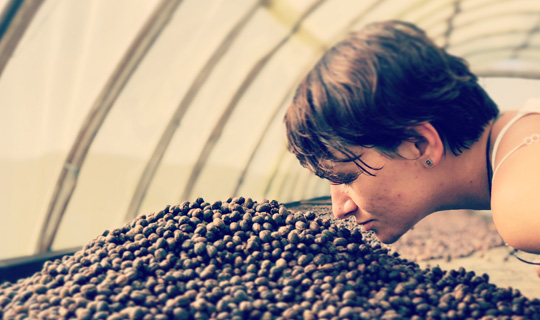My name is Octavia and I am Coffee Vibe.
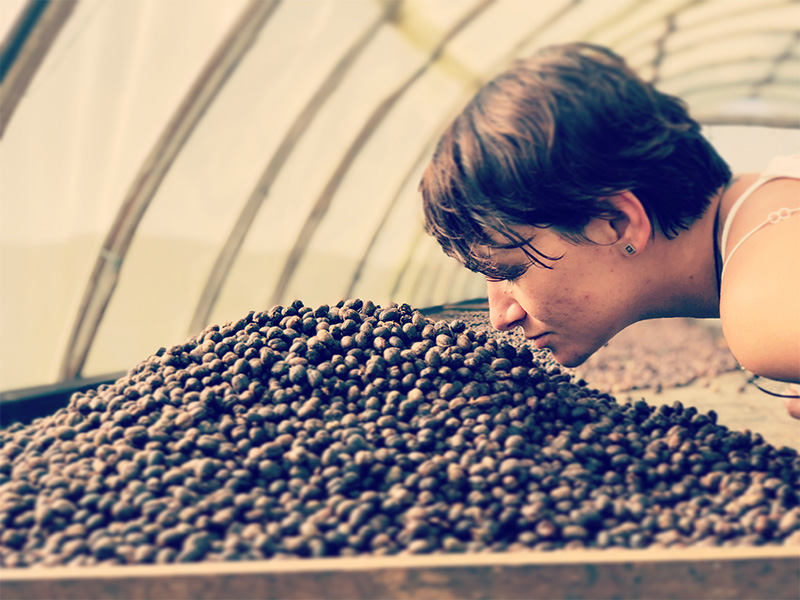
Six years ago, I met David Bedoya, the nephew of Neol Bedoya, the eldest farmer in the Bedoya family, a family with a tradition in the coffee world since 1918. Although I knew that David was a connoisseur and owner of plantations, I never considered that this wealth would be a part of my life at some point.
In March 2020, I decided to go to Colombia on vacation and, of course, to visit my friend whom I had met on another journey that would change the course of my life, Camino de Santiago de Compostella.
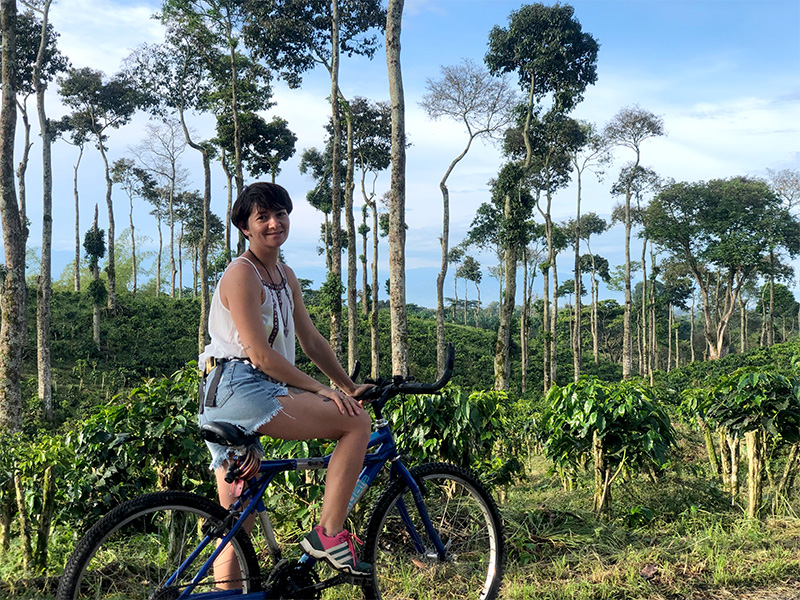
Thus, I spent almost 10 days in the „Eje Cafetero” alongside his family of farmers, people who love what they do and who introduced me to a world totally unknown to me until then. They instilled in me their passion, but also the work they put in day by day and most often unrecognized.
My journey on the coffee plantations began with settlements of thousands of coffee saplings, which are somewhere around 1.50-1.70 meters tall and produce some red fruits, about the size of an almond. We would wake up early in the morning accompanied by the song of birds, take our bicycles, and by around lunchtime, we were moving from one plantation to another, getting acquainted with his uncles, owners of other plantations, with the employees and managers, with the harvesters – all simple people, but very happy. We did cuppings and went through all the processes of preparing the coffee fruits. I learned that there are three main processes:
- washed
- natural – with different fermentation times
- honey
You probably have seen these processing methods on the labels of coffee bags, but I didn’t know what they meant and what the difference between them was, but I will tell you more about it in another article.
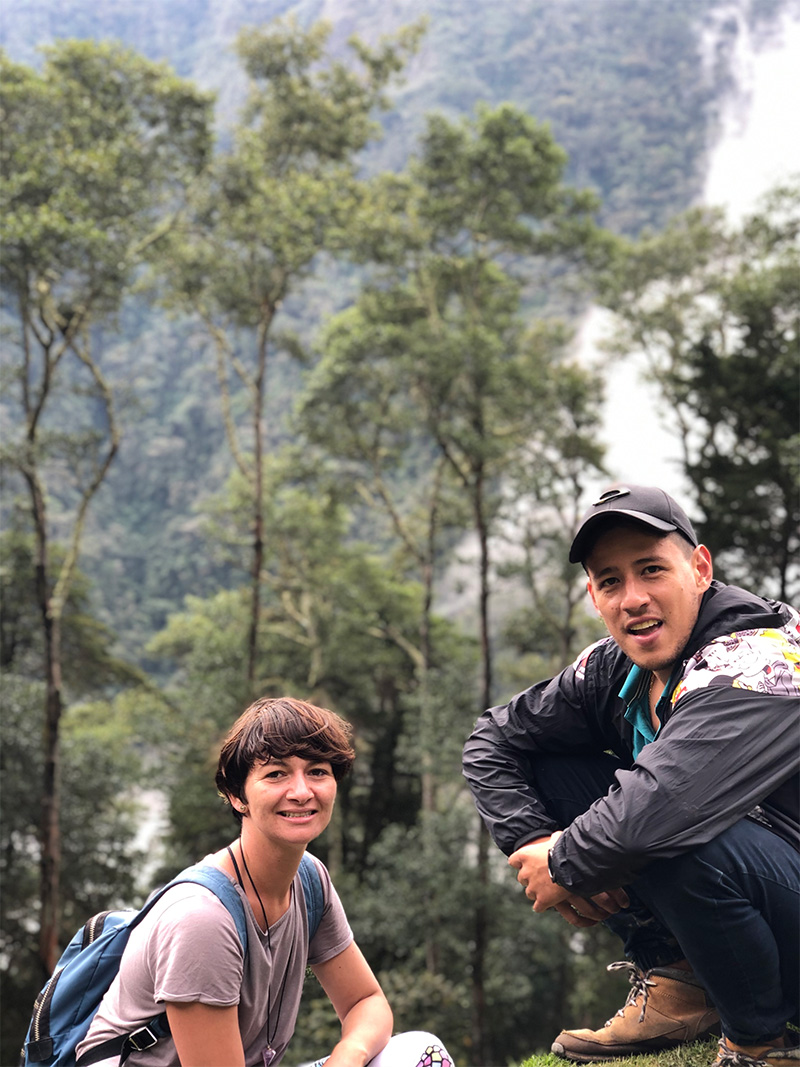
I visited various roasters and found out that extremely roasted (black) coffee is toxic/carbonized and not healthy, and the excessive roasting is done because the coffee beans are not of high quality and in order to bring out a profile – bitterness is emphasized. And so, I drank coffee with floral, fruity notes, with different flavors of nuts or chocolate, and what I liked <3 And yes, there was not a trace of milk in it and it didn't seem like anyone had milk for coffee!
Discussing with David and wanting to absorb as much information as possible about this magical world considered as precious as champagne or wine, I learned how hard it is for the farmers and how much they struggle not to give up their farms in favor of more profitable cow farms, which would be a loss for the entire population, with coffee being the second most consumed beverage in the world after water.
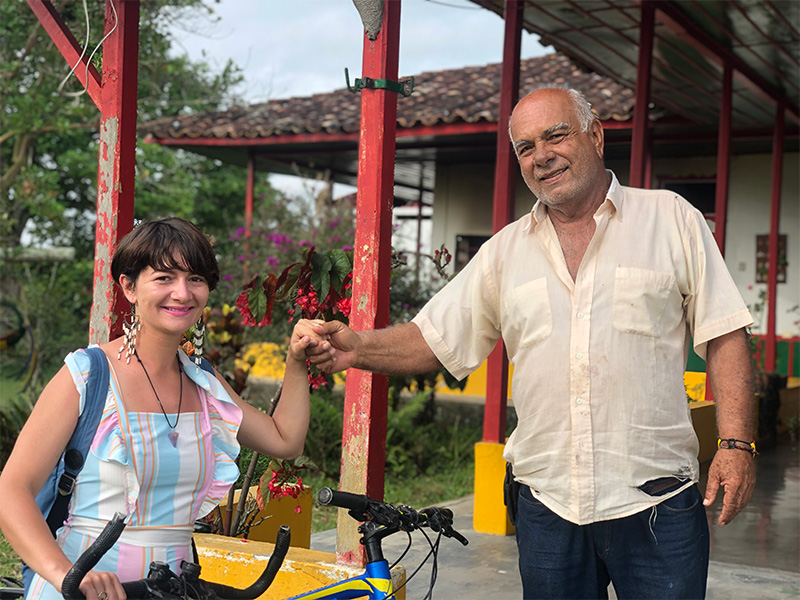
The major problem is the cooperatives, which pay the farmers very poorly, sometimes failing to cover their weekly expenses with the payment of coffee pickers, being forced to sell the coffee for nothing. Thus, a vicious cycle is created in which the farmers are not motivated to produce good, quality coffee and are put in the position of giving up their own passion, their rich knowledge passed down from generation to generation, leaving everything behind in order to survive.
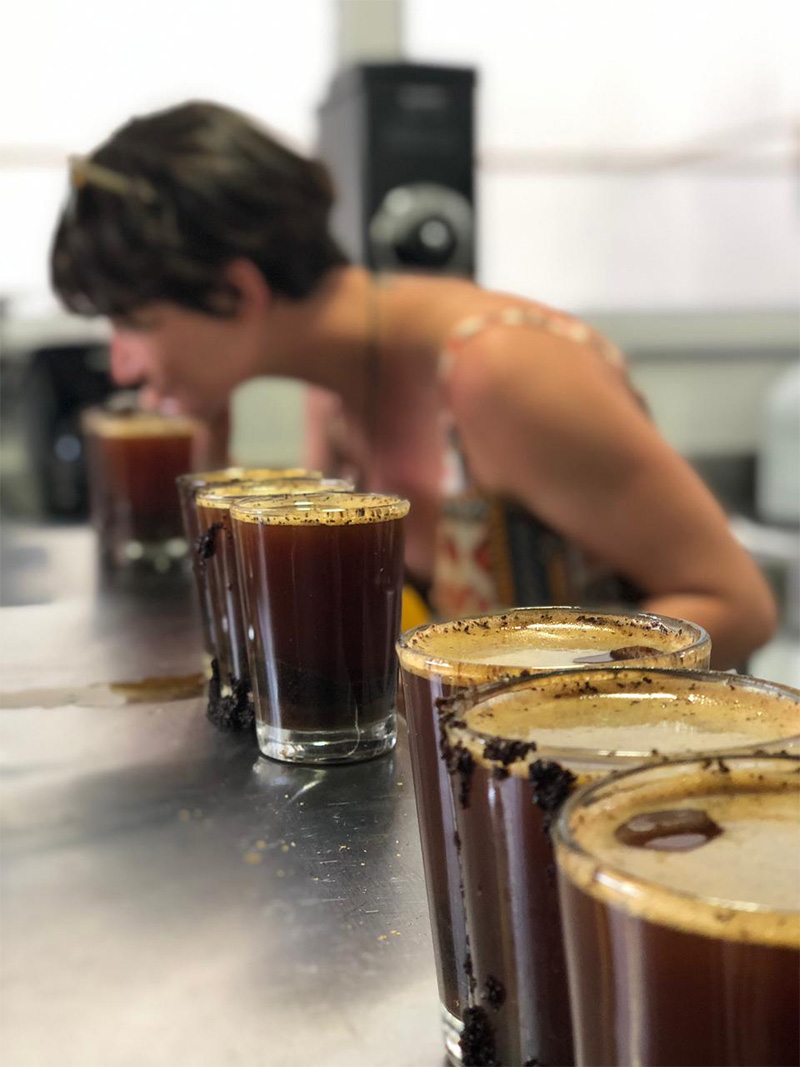
This wonderful experience offered me not only a new perspective on coffee and well-being, but it also brought me into a family of beautiful, skilled, and passionate people and gave me the chance to meet more farmers and understand their beautiful hard work, and of course, be part of this amazing area, which connects people all over the world.



